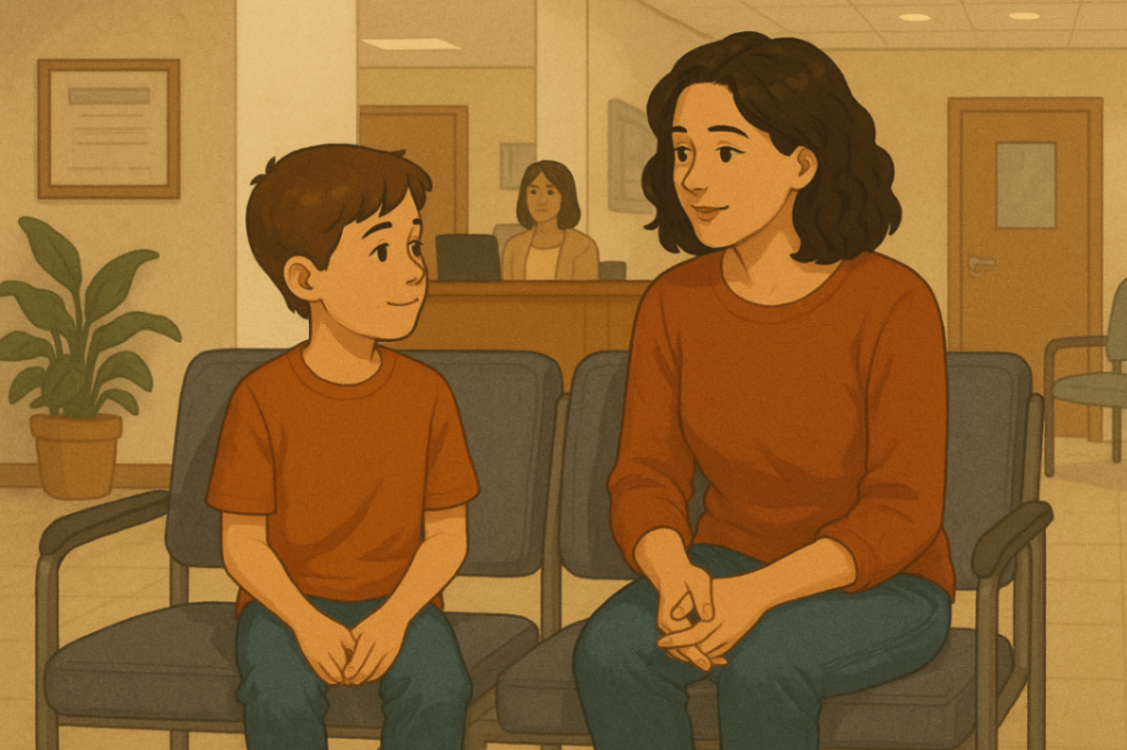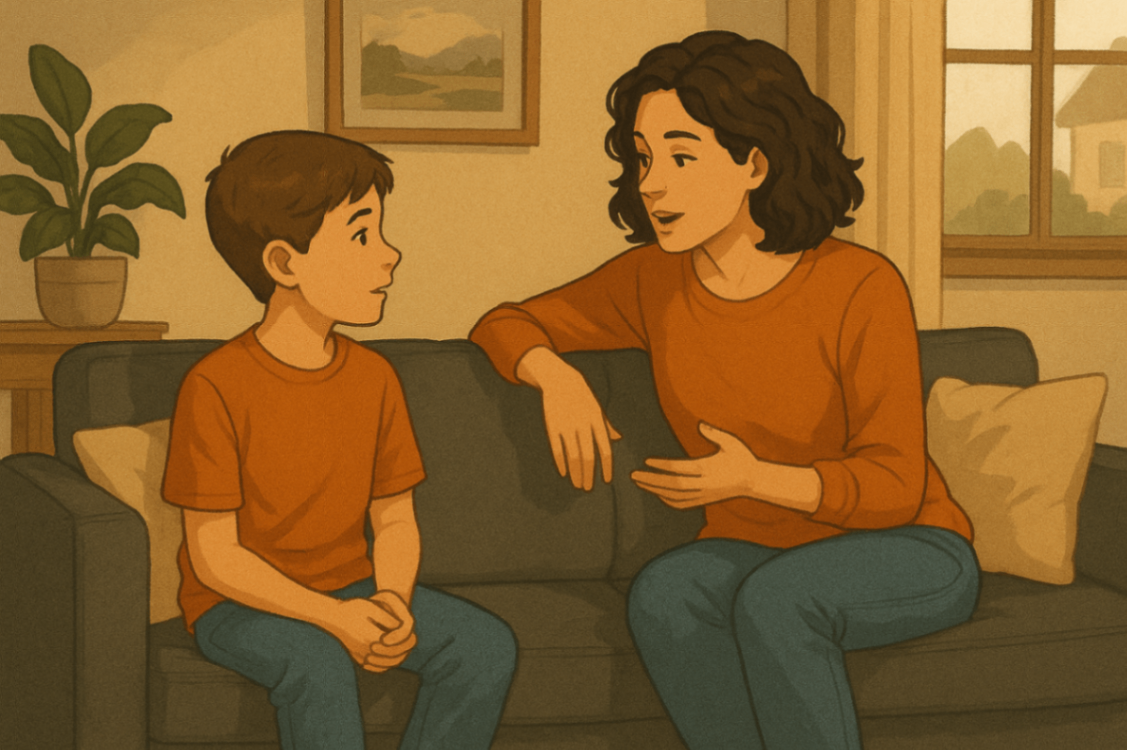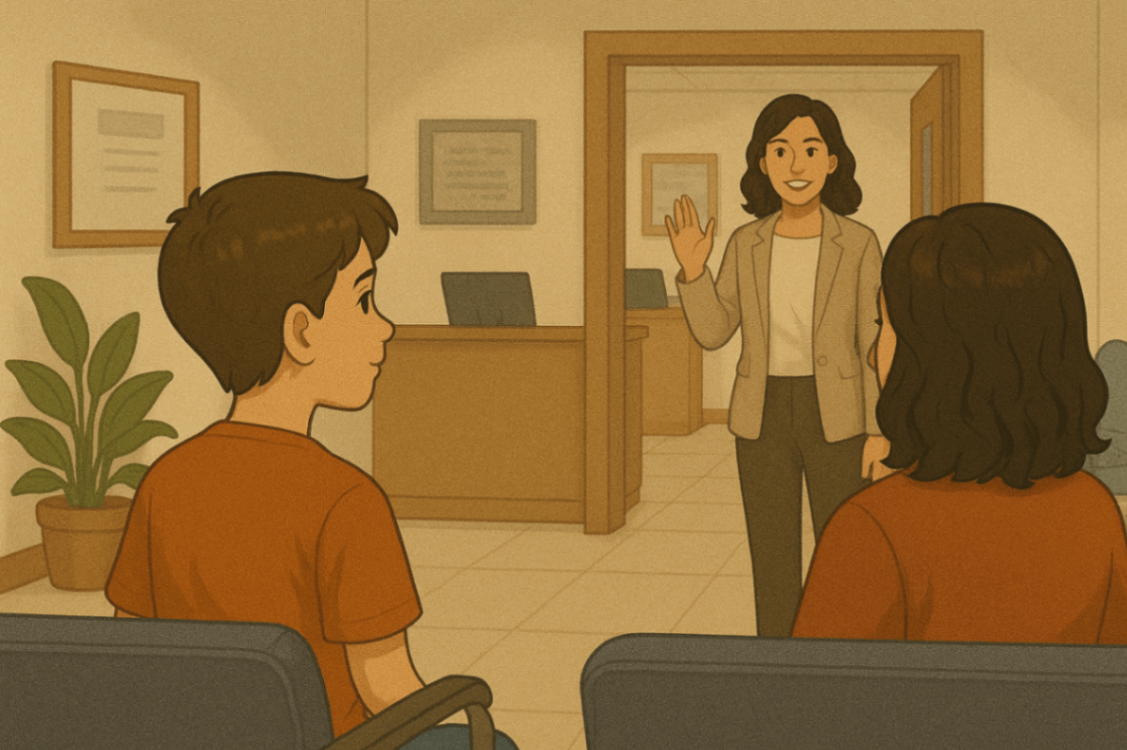
preparing for your first behaviour support appointment
21 June, 2025

Key Highlights
-
Discover how behaviour support services can help children on the autism spectrum by addressing specific needs in a structured manner.
-
Learn the role of applied behaviour analysis (ABA) in creating effective positive behaviour support plans for your child.
-
Get insights on behaviour analysis tailored to developmental disabilities across different years of age groups.
-
Understand how to collaborate as caregivers to foster your child’s growth during therapy sessions.
-
Prepare necessary documentation to meet your child’s unique needs and ensure a good fit with the registered behaviour analyst.
Introduction
Starting your child’s journey with behaviour support services can feel exciting and a bit much at the same time. If you are a parent of a child with autism spectrum disorder or developmental disabilities, the first meeting is a time to learn what your child needs. It is also where you will help build their support plan for the future. As caregivers, you play a big part in making a safe and caring space for your child. You also help shape how it will look as they move forward. This blog gives you a caring guide to get ready for that first behaviour support appointment. You will get tips, the right steps, and confidence for that day.
Preparing Your Child for the Appointment
 Helping your child get ready for their first behaviour support visit is important. Kids at different years of age can act in different ways when they face something new. It is good to talk about the visit in a positive way. You can start by describing what will happen at the place and show how it will help with their social skills and the way they grow. Give some simple examples of things they might do or see during the time there.
Helping your child get ready for their first behaviour support visit is important. Kids at different years of age can act in different ways when they face something new. It is good to talk about the visit in a positive way. You can start by describing what will happen at the place and show how it will help with their social skills and the way they grow. Give some simple examples of things they might do or see during the time there.
When you talk with your child, make sure they feel safe and relaxed. Try to lower any worries or stress. Answer any questions they have about developmental disabilities or what support they might get for themselves. Keep in mind, your comfort as caregivers helps your child have a good beginning. This support from you is important for them.
Discussing the Upcoming Visit with Your Child
Start talking about the behaviour support consultation early. Use simple, easy-to-understand words to explain what it is. Tell them it’s about learning and building good habits. If your child is on the autism spectrum, let them know the appointment is there to help with things like day-to-day routines or talking to others, all in a clear and helpful way.
Pick a quiet, stress-free time to have this talk. Point out the good things about the visit. Share that they will meet friendly people who know a lot about behaviour. Say the session is a safe place where they can get to know themselves better. Ask them what they think and feel. Let your child talk freely and don't judge what they say.
If they are not sure about going, you can offer to visit an after-school program or another place they know well before the appointment. This can help calm their nerves. Caregivers are a big part of helping in this talk. When you sound calm and confident, your child is more likely to feel at ease too. This can make them more willing to go to the consultation.
Tips to Reduce Anxiety and Build Comfort
Reducing anxiety before the appointment is important. The use of mental health tips can help get your child ready in the best way. Here are a few steps that you can take:
-
Create a countdown: Start to remind your child some days before the appointment. This will help take away stress from things feeling random or unknown. You can also tell your child about the good parts, like meeting the team or seeing new toys.
-
Use visuals to help them know what’s coming: Show photos that feature the positive behaviour support space or videos that talk about behaviour analysis.
-
Bring comfort items: You can take along their favorite toy, blanket, or any gear that helps with senses so that your child will feel calm when they are there.
As well as following these tips, you can take part in role-play activities that copy therapy settings and help your child gain some confidence. Be caring and, if they have worries, you should listen and reassure them. Remind them that the caregivers and therapists want to help them grow and do well.
What to Expect at Your First Behaviour Support Appointment
 Your child’s first session is to help them feel safe and relaxed. At the same time, it helps us see what they do well, and what they may need help with. You and your child will meet a registered behaviour analyst. This person will talk about how things work and what will happen. The session starts by talking about goals and reporting what we see. This is a key part in building a special behaviour support plan that is made just for your child’s unique needs.
Your child’s first session is to help them feel safe and relaxed. At the same time, it helps us see what they do well, and what they may need help with. You and your child will meet a registered behaviour analyst. This person will talk about how things work and what will happen. The session starts by talking about goals and reporting what we see. This is a key part in building a special behaviour support plan that is made just for your child’s unique needs.
Here’s a look at a normal timeline:
|
Step |
Details |
|---|---|
|
Welcome & Introduction |
Meet the team who works with behaviour; caregivers can ask any questions. |
|
Assessment |
The team looks at what your child can do right now and how they act. |
|
Draft Goal Planning |
The analyst and the caregivers talk about feedback and start making some first plans. |
These steps help lay the way for more checks and changes as we learn more about your child and make your child’s program better as time goes on.
Parent Checklist – What to Bring & Know
To be sure of smooth talk during the appointment, you should get ready with some key items. Take any referral papers that have notes about past checks and talks with other experts. Bring your own notes about your child’s unique needs or how they act. This will help the team to make a good fit plan for your child.
Get to know the support the team offers, like ABA, with options such as focused and full therapy. When caregivers keep open talks, they get to work better with the registered behaviour analyst for future visits.
Notes on Your Child’s Behaviours and Triggers
Writing down your child's behaviour and what sets them off is very helpful for the registered behaviour analyst. Try to write about exact times when your child has trouble with social skills. This is often needed for kids with autism spectrum disorder. Be sure to include what was happening at the time, how your child felt, and anything in the place that might have caused their behaviour. This will help build strong behaviour analysis. It also lets the team make behaviour support plans that match your child's needs.
When you give details about these needs, it helps caregivers follow your child's mental health journey. It will also help see if the behaviour support services are a good fit. All this work makes it easier for everyone to understand your child and give the right support for autism and social skills.
Our Liverpool & Canterbury Teams Are Here to Help
Families in Liverpool, Canterbury, and surrounding suburbs—Casula, Moorebank, Wattle Grove, Bankstown, Campsie, Lakemba, Belmore, and Wiley Park—can access specialised behaviour support services that adapt to their child’s changing needs.
Our team of NDIS-registered clinicians delivers evidence-based behaviour therapies tailored to each child. Whether you prefer centre-based support or therapy at home, we partner with parents to create meaningful progress—step by step.
Expertise You Can Trust: From behavioural assessments to Positive Behaviour Support Plans, our practitioners bring clarity and compassion to every session.
Book your Behaviour Support Appointment with Confidence
Booking with DAAR is simple and supportive.
Your first consultation is a no-pressure conversation—we’ll explore your child’s needs and help you understand every step of the therapy process. You’ll receive transparent guidance on how our services align with your NDIS goals. Flexible session options are available: one-on-one, group-based, or in-home.
We match each child with a therapy pathway designed for long-term progress and parent peace of mind—with detailed reporting, consistent feedback, and a focus on outcomes.
Conclusion
Getting ready for your child’s first behaviour support appointment can bring up both excitement and nerves. If you use the checklist and tips given, you will help make sure you and your child feel ready for what’s ahead. It is normal to have some questions or worries, and the behaviour support team is there to help and answer what you need. Take this time to learn and grow with your child, and remember, you are not alone in this. If you feel ready to move forward, go ahead and book your Behaviour Support Appointment today. Your child should get the best support.
Not sure which delivery method suits you? Compare in In-Clinic Behaviour Support vs Telehealth: Key Differences
Frequently Asked Questions
What should I expect during the first behaviour support appointment?
At your first behaviour support appointment, you and the professional will talk about your child’s behaviours. You will also talk about what sets off these behaviours. The professional will look at any notes you have made. They will ask you questions to better understand what you need and what your concerns are. Together, you and the professional will make a support plan that fits your child. This plan will help with their needs in the best way.
How long does a typical behaviour support session last?
A normal behaviour support session will take about 45 to 90 minutes. This gives the support person enough time to look at your child’s needs and talk with you or your family about what can help. They will also talk about ways to manage behaviour. In this time, they help set goals that fit your family and what you need.
Can I stay with my child during the appointment?
Yes, parents can be there during the consultation. This is important for children with autism spectrum disorder who are under nine years of age. Caregivers can give useful details about the child. This helps make sure that behaviour support plans are a good fit for the child. It also helps therapy methods work better during the consultation and for autism support.
What happens after the first appointment?
After the consultation, the team creates behaviour support plans made just for you. The registered behaviour analyst checks that milestones are being met at each step. They make sure positive behaviour support methods are used the right way. A referral shows how any follow-up will be included.
How do I communicate ongoing concerns or updates to the behaviour support team?
To keep the behaviour support team up to date, try to talk with them often. You can use emails or set up regular meetings. Write down any changes or things you notice in your child's behaviour, so everyone is clear. Ask for feedback, so you and the team can work together to help your child in the best way.
.svg)






